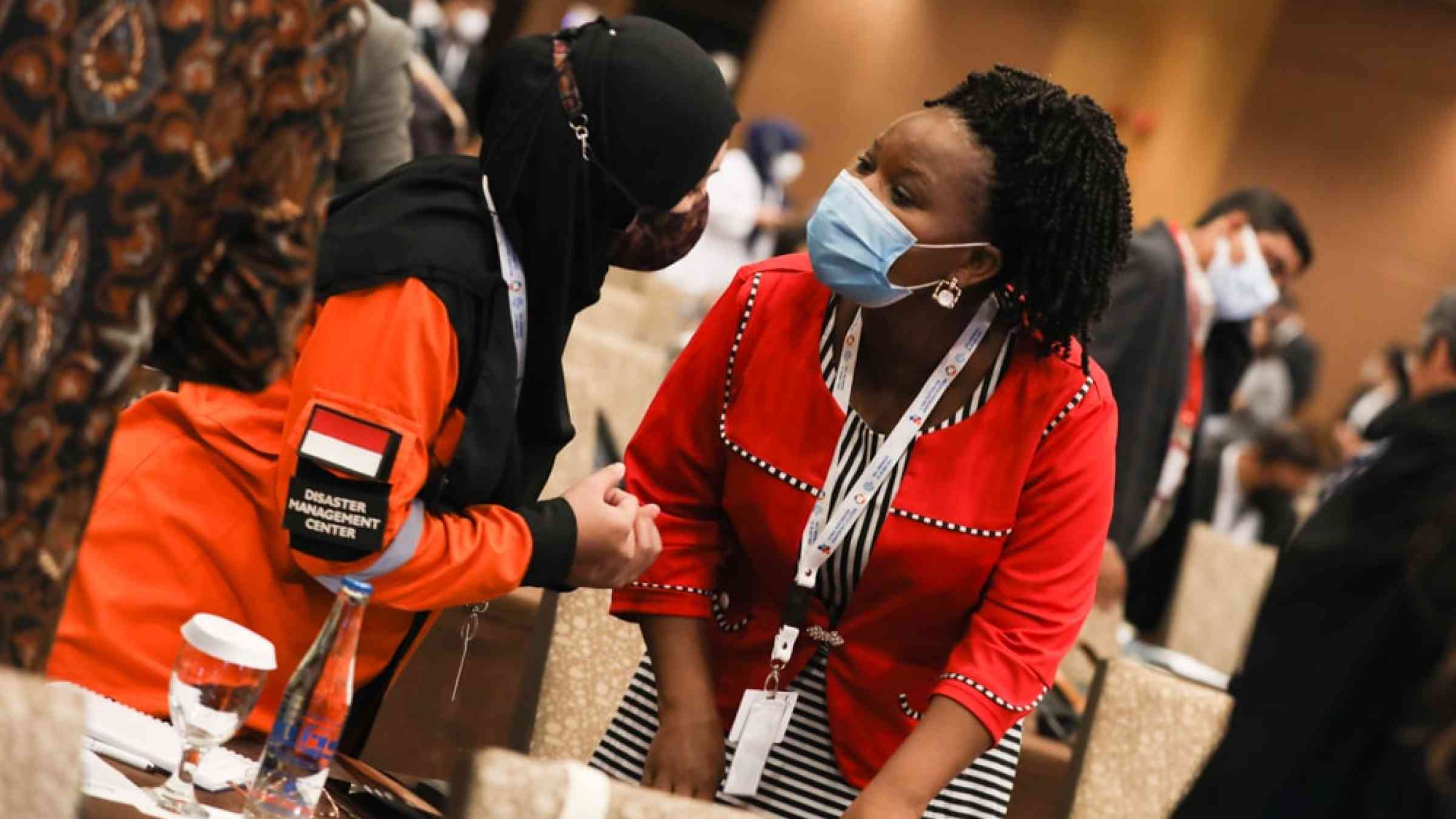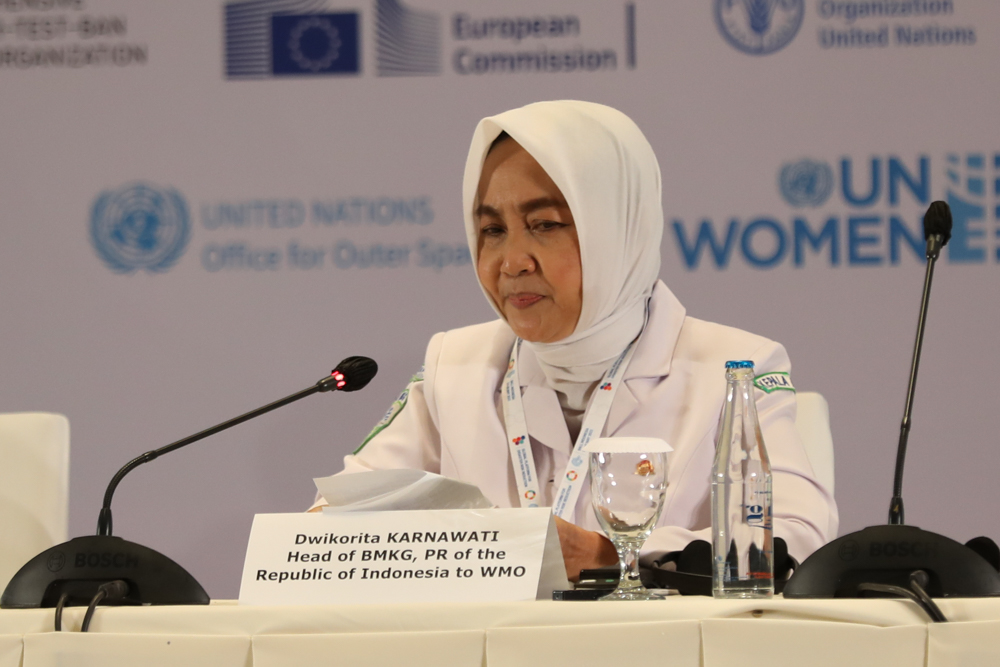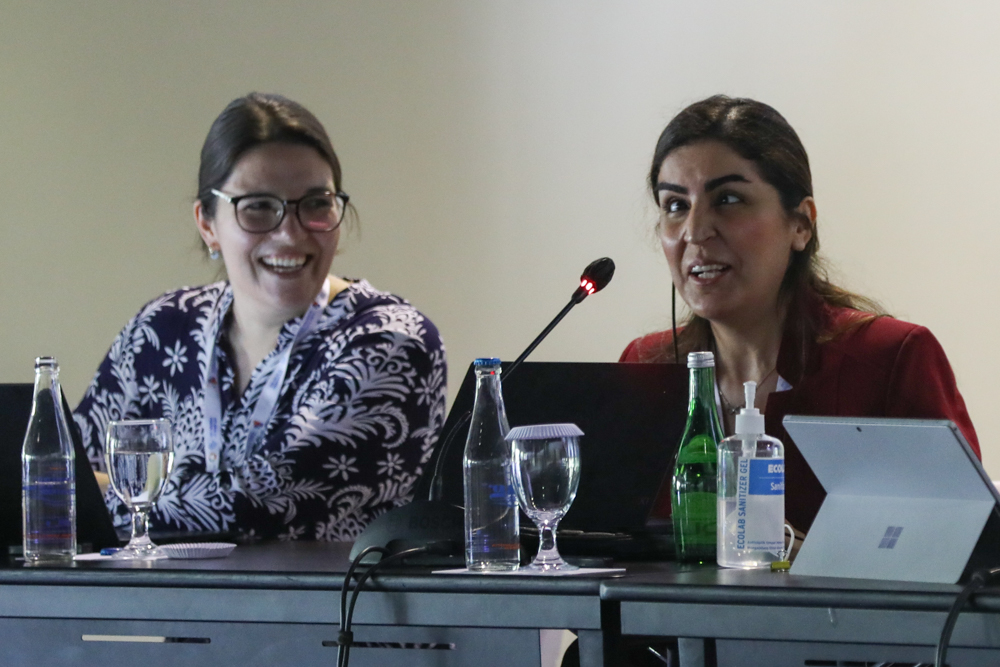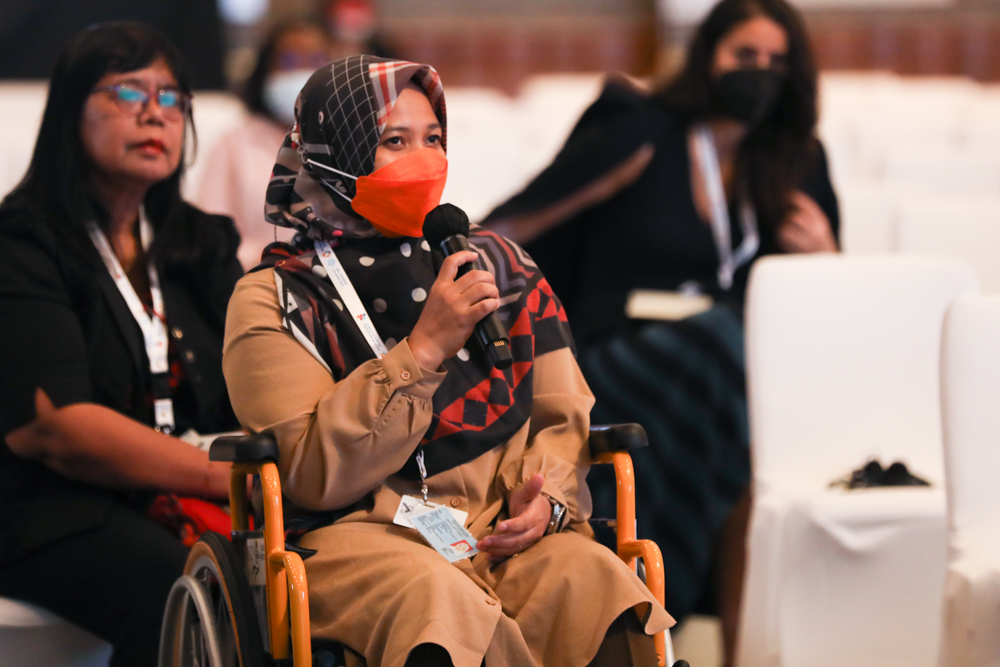Please help us improve PreventionWeb by taking this brief survey. Your input will allow us to better serve the needs of the DRR community.
24 May 2022: Highlights and images of main proceedings

Delegates meet and greet to share experiences at the Global Platform 2022.
The second day of the seventh Global Platform on Disaster Risk Reduction 2022 (GP2022) concluded preparatory events, setting the stage for the main part of the meeting, which kicks off on Wednesday, 25 May.
The third Multi-Hazard Early Warning Conference (MHEWC-III), the second Stakeholder Forum, and the fifth World Reconstruction Conference (WRC-5) concluded their deliberations, drawing valuable conclusions on the way forward on disaster risk reduction (DRR) and implementation of the Sendai Framework.
To dive deeper, read the full Earth Negotiations Bulletin Daily Report.
Third Multi-Hazard Early Warning Conference
On its second and final day, MHEWC-III further explored thematic perspectives. Participants discussed how to best communicate and disseminate warnings, leverage private sector contributions, transition from mainly reactive to anticipatory action, and coordinate DRR with humanitarian efforts. A high-level panel discussed what is needed to deliver on a "clear moral imperative" to make natural hazard early warning a reality for all of humanity by 2027. During the closing session, UN Deputy Secretary-General Amina Mohammed called for multi-stakeholder and cross-sectoral collaboration as well as adequate funding to reach this target and to reduce the risk from climate-related hazards that nearly half of humanity is already facing.

Second Stakeholder Forum
The Stakeholder Forum devoted its morning sessions to a set of interactive and outcome-oriented smaller parallel discussions, focusing on: the gap between science and technology, and practice at local level; local implementation of the Sendai Framework; disaster risk governance; integrating DRR into climate change policy and action; DRR financing; and the mid-term review of the Sendai Framework.
In the afternoon, a plenary session summarized the key messages from the parallel sessions, highlighting, inter alia, the need to: move away from one-size-fits-all approaches; make local communities the protagonists of change; achieve policy integration between DRR and climate change policies; and incorporate DRR considerations in all investment decisions. A second plenary session focused on the main messages from the constituency sessions, which took place on Monday 23 May, portraying the views of major groups and stakeholders. The closing session heard about experiences with disaster risk management from around the world and summarized key take-home messages from the Stakeholder Forum on the path ahead.

The Fifth World Reconstruction Conference
WRC-5 convened for its final day, addressing themes around disaster risk recovery in conflict zones as well as technical sessions on managing complex crises, financing, and pre-disaster recovery plans.
The plenary session on disaster risk recovery in conflict zones explored the unique governance challenges posed by the intersection of conflict and disaster risk recovery, with panelists noting a myriad of problems to be resolved. They suggested solutions must: be integrated; sensitive to conflict, including its source and drivers; and look for opportunities to reduce conflict through DRR plans.
During the closing, participants heard the highlights of the WRC-5 Communique, which, inter alia: calls for a commitment to a resilient recovery process to build back better, putting agency in the hands of the affected people; recognizes that critical infrastructure recovery requires strong collaboration with civil society, including local knowledge holders; and seeks to develop gender responsive recovery governance strategies and processes.

Please note: Content is displayed as last posted by a PreventionWeb community member or editor. The views expressed therein are not necessarily those of UNDRR, PreventionWeb, or its sponsors. See our terms of use
Is this page useful?
Yes No Report an issue on this pageThank you. If you have 2 minutes, we would benefit from additional feedback (link opens in a new window).